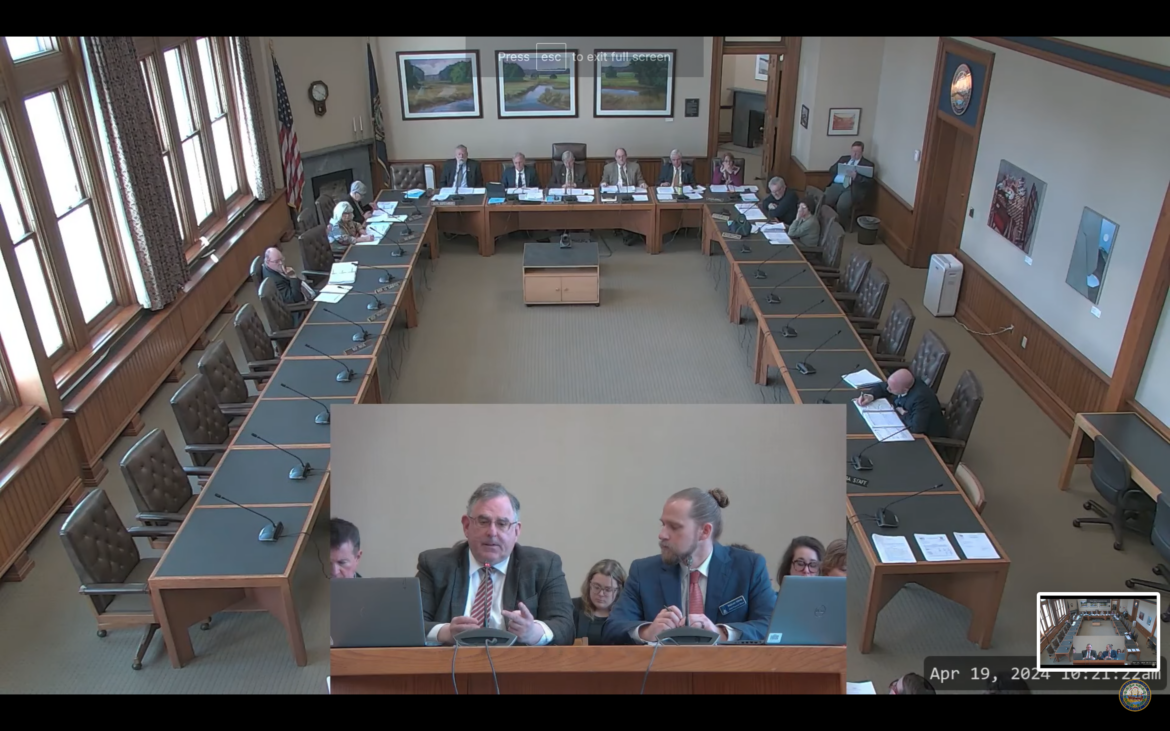By GARRY RAYNO, InDepthNH.org
CONCORD — The state Department of Health and Human Services hopes to help transform the community mental health centers through a federal demonstration program.
The Joint Legislative Fiscal Committee approved $1 million additional federal funds Friday as the agency seeks to expand access to high-quality, evidence-based and trauma-informed behavioral health services within the centers.
The Behavioral Health Division anticipates the centers will use the Certified Community Behavioral Health Clinic model, which agency officials say has been successful in other states reducing emergency room visits and hospital readmissions.
Katja Fox, Behavioral Health Division Director, told the committee her agency just received an extension from the federal government for the planning stages and implementing the program. She said the additional money will help fund the program beyond the planning stage, which is where it is currently.
“The purpose of the CCBHC model is to transform community behavioral health systems to ensure easy access to comprehensive, coordinated behavioral health services,” department officials say in information provided to the committee.
The committee approved the item.
COVID Money
The committee learned $16 million of American Rescue Plan Act money is available to be reallocated before the Dec. 31 deadline.
The committee approved items Friday that will reduce that figure, but Governor’s Office for Emergency Relief and Recovery Executive Director Taylor Caswell said he expects additional money to be available to be reallocated before the deadline.
The committee did approve the use of $1 million to add to a fund to assist homeowners, residential property owners, and childcare facilities to remove lead from their properties.
The New Hampshire Housing’s Lead Hazard Control and Healthy Homes Program currently has a fund of $88 million and the additional ARPA money will bring the total to $89 million.
The committee also approved using $2 million of ARPA funds to help pay for two projects on the Seacoast. The money will be used for an engineering study, design, permitting, and construction for a replacement building for the Portsmouth Fish Pier and engineering, design, bidding, permitting, and construction of a structure to better accommodate retail operations at Rye Harbor. Both facilities are owned by the state.
Another $1 million will be used to repair off-highway vehicle trails damaged by rains and floods last year.
Nursing Home Shortfall
The committee also approved increasing Medicaid payments to nursing homes by $25 million to be split between the federal government and the state.
The shortfall resulted from a billing delay that moved what were obligations for fiscal year 2023 into fiscal year 2024.
Health and Human Services officials say that resulted in under-budgeting the cost of nursing home care.
“There were a significant number of claims. that were paid in state fiscal year 2024 that were for prior period services and were not detected during budget development. When determining rates for the current state fiscal year, the Department uses trends from prior periods,” officials said. “Due to the backlog of billing these claims, the data showed a utilization which was lower than the experienced need.”
COVID Shots
The committee approved accepting $256,069 from the Center of Disease Control and Prevention to develop a new data system available to the public on child vaccinations.
“These federal funds will support the development of new data dashboards to visualize the geographic distribution of childhood vaccines in the state,” said HHS officials in information provided to the committee. “These new resources will improve the understanding of local protection from vaccine preventable diseases and support disease management and outbreak response needs.”
Committee member Rep. Jess Edwards, R-Auburn, wondered what information would be available to the public.
He suggested including “the number of childhood COVID shots we have given out. I think we are putting kids at risk to give them the COVID shot, although the CDC says it’s OK.”
Iain Watt, the interim director of Public Health Services, said they have yet to issue a request for proposals on the new database, but are currently working on what information would best serve the public.
Edwards said the agency must have some idea of what they want before the RFP is issued, and he would like to be informed as the agency moves forward.
Watt said they are reviewing what data they have available and what would be meaningful, noting that the vaccination data has become opt-in recently and the data is impacted by that.
The vaccination program used to allow parents and others to opt-out of having their data entered into the database, but now people have to opt-in to provide the information, making it less robust.
The committee also approved a $2 million grant from the CDC to join a national program of wastewater surveillance for respiratory viruses and infectious diseases including COVID.
The program will test treatment plants across the state and the effluent will be processed by the state’s public health lab.
The results of the testing and the locations will be publicly available.
“Successful implementation of wastewater monitoring will give citizens increased awareness of circulating pathogens in communities across the state to mitigate disease spread and potentially reduce burdens on the healthcare system,” health officials said.
The fiscal committee next meets May 19 at 10 a.m. in the Legislative Office Building in Rooms 210-211.
Garry Rayno may be reached at garry.rayno@yahoo.com.






